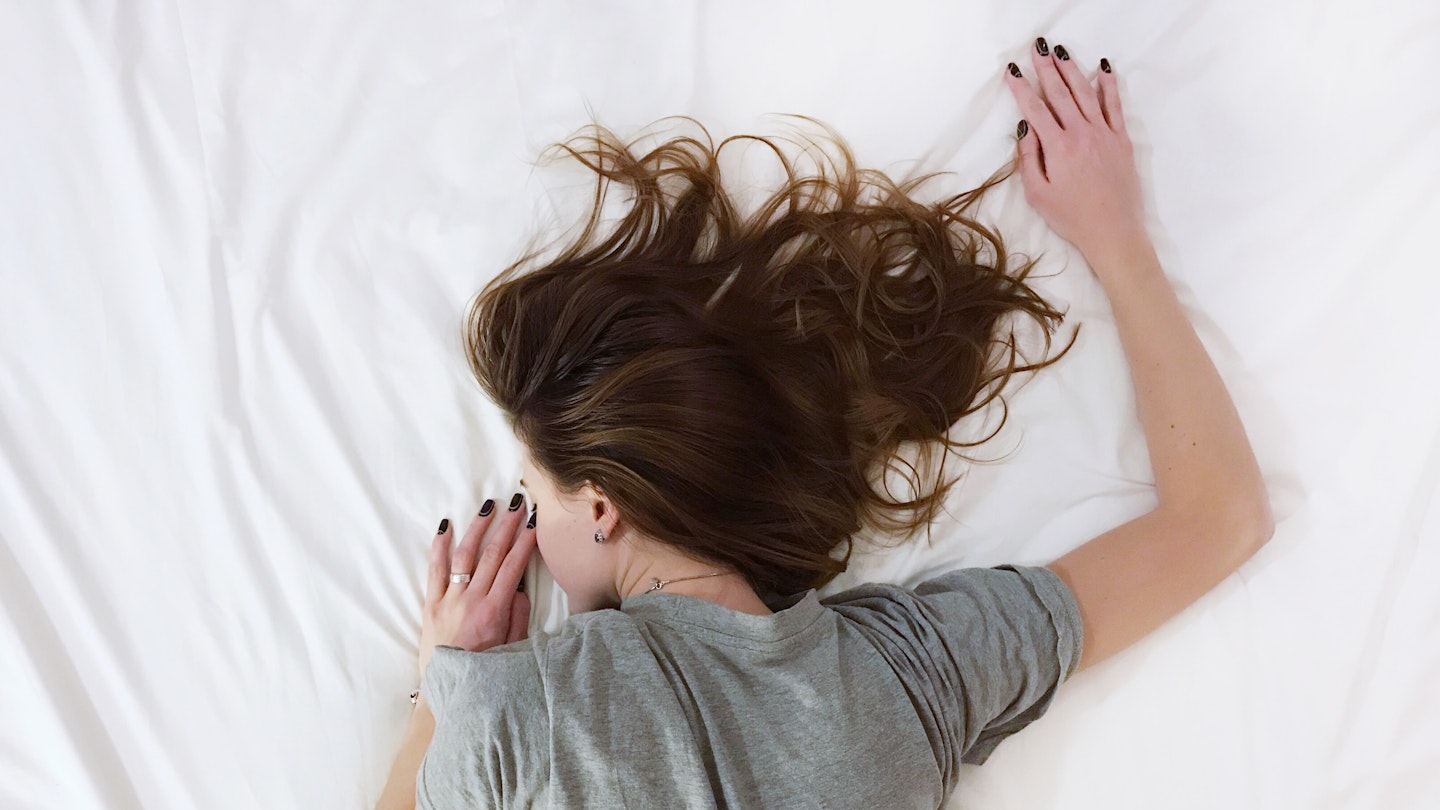Alexa Chung kicked off Endometriosis Awareness Month with a powerful Instagram post inspired by her own diagnosis last year. Questioning whether gender healthcare bias is one of the reasons there’s yet to be a cure for this debilitating disease, Alexa’s insightful comment hit a nerve.
Misogynist remarks were regularly flung at me by male doctors throughout my 20-year endometriosis experience. I’ve been labelled ‘an anxious little thing’ and condescendingly instructed that having another baby would fix my symptoms (on top of how problematic a statement this is, my condition actually became worse after each birth, and endometriosis itself can cause an inability to conceive). At one point unable to eat properly because of intense pain, I once raised severe weight loss as a concern, only to be told, ‘Most women would be happy to drop a few pounds.’
Affecting 1 in 10 women, endometriosis is a gynaecological condition in which tissue mimicking the lining of the womb attaches itself to other parts of the body. Symptoms include painful, heavy or irregular periods, fatigue, infertility, pain during or after sex and depression. There is no known cause and endo can be found in areas including the pelvis, lungs, bladder, diaphragm and bowel.
As well as being excruciatingly painful, Endometriosis UK say the disease has ‘a devastating impact on a woman’s education, personal and professional relationships, mental health, and quality of life.’
Its current average diagnosis time is 7.5 years, and mine took a grand total of nine. Looking back, part of the problem was that I didn’t have a clue what a ‘normal’ period was. Endometriosis UK are fighting to tackle this issue, highlighting the lack of education contributing to societal taboos in talking about female health, delaying endometriosis diagnosis. In fact, their figures show 54% of people do not know what endometriosis is, increasing to 74% of men.
No stranger to fighting female health stigma, I’d also argue an equally huge problem as an endo sufferer is constantly feeling you aren’t believed. Attending yet another appointment aged 21, the family GP sighed that lots of women have unidentifiable aches and pains. Demoralised and deflated by his take, it was like screaming to be heard from a soundproof room. I would then begin to doubt my own suffering and the vicious cycle continued, any fight for answers seeming an insurmountable climb.
I have seen first-hand the toll living with endometriosis takes on jobs, relationships and friendships.
How was I supposed to ask my boss for any more sick days due to crushing fatigue, nausea and grinding pelvic pain, when there was nothing tangible to attribute these regular symptoms to? These worries were justified, and that employer was the first of many to manage me out of a job I’d fought hard for, blaming prolonged absences.
Finally diagnosed at 23 via laparoscopic keyhole surgery (the only way to identify endometriosis) I felt overwhelming relief that I wasn’t going mad. Asking a consultant for extra painkillers ahead of getting married a year later, my eyes stung with tears hearing his dismissive, derogatory response: 'You should be more worried about blood on a white dress.’ Humiliated and speechless, I never did get that prescription.
Now 35 and with a further nine operations under my belt, I wish I’d challenged these recurring episodes and have obviously, in hindsight, rehearsed satisfyingly cutting comebacks. But in reality, when you’re at the mercy of its painful grip, the sheer agony of endometriosis sucks away any ounce of physical or emotional energy you may have left. Jarringly, most subsequent treatment plans were determined by those very same doctors whose authority I felt eclipsed my own voice, due to their derogatory remarks.
I have seen first-hand the toll living with endometriosis takes on jobs, relationships and friendships. It can be intensely difficult to articulate the hopelessness felt when faced with daily exhaustion and pain. And any dependence on others for financial, emotional and physical help due to losing your job or being too dosed up on much-needed painkillers to function, can feel shamefully degrading.
As the government asks patients and medical practitioners to detail their endometriosis experience as part of a wider campaign to improve services, we must also address the psychological warfare caused by being repeatedly undermined.
Of course, I’m eternally grateful to the many medical professionals who have unequivocally supported and cared for me. Doctors, nurses and healthcare assistants; they’ve heard my anguish, brought quiet comfort in moments of clinical invasion and soothed wracking sobs on hospital wards.
Reaching a place of acceptance that endometriosis is part of my ongoing life, despite a hysterectomy for sister-condition adenomyosis, the voice of both teenage and adult me will no longer be ignored. Recently chasing a diagnosis for an unrelated health issue, I sought expert opinion without feeling a need to be obediently compliant. I attended appointments armed with notes, unafraid of appearing disagreeable if I wanted to challenge anything.
Because although you shouldn’t have to, advocating for yourself and your body is half the battle of endometriosis. And the only way to expose any medical misogyny or gaping gender bias which undoubtedly, does exist.
READ MORE: One In Six Endometriosis Sufferers Are Forced To Give Up Work, Costing Them Over £5000 A Year
READ MORE: Six Things You Only Know If You Have Endometriosis
